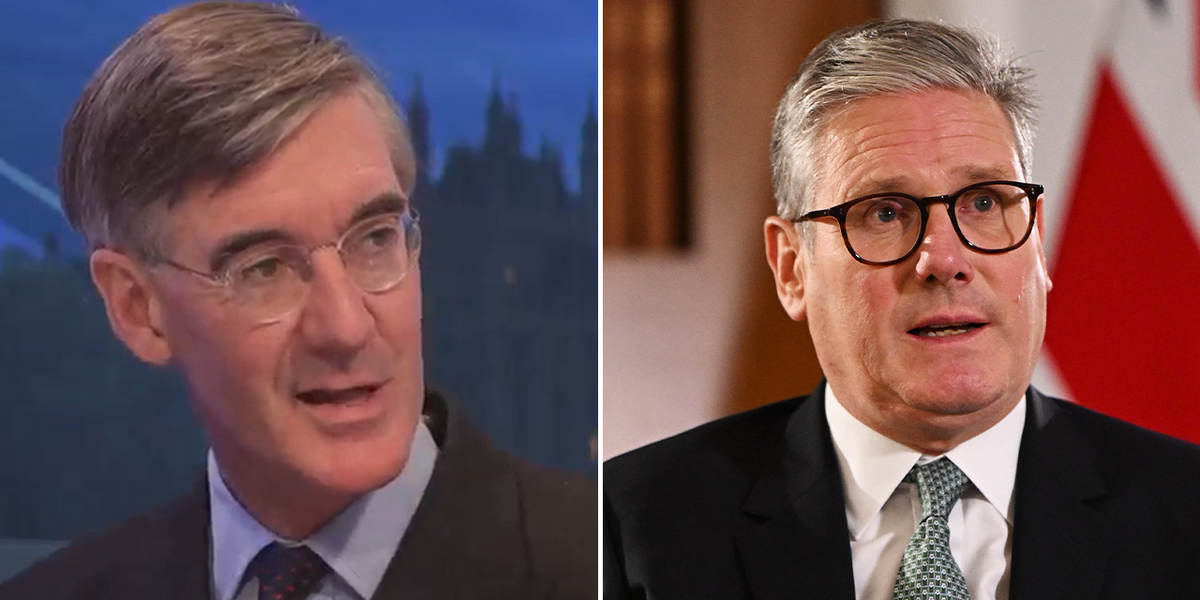Jacob Rees-Mogg Accuses Keir Starmer of "Throwing His Son Under the Bus" Over Accommodation Controversy
In a recent episode of political drama, Jacob Rees-Mogg, the former Conservative MP, has launched a scathing critique of Labour leader Sir Keir Starmer, accusing him of "throwing his son under the bus" in relation to the Prime Minister’s acceptance of £20,000 worth of accommodation from a Labour donor. This controversy has sparked a heated debate about ethics in politics, the responsibilities of public figures towards their families, and the implications of financial support from donors.
The Context of the Controversy
The controversy centers around Sir Keir Starmer’s acceptance of £20,437 worth of accommodation from Labour peer Lord Waheed Alli during a crucial period between May and July. Starmer defended this decision by explaining that the accommodation was necessary to provide a peaceful environment for his 16-year-old son to study for his GCSEs, away from the prying eyes of journalists who often camp outside their family home during election campaigns.
In a BBC interview, Starmer elaborated on his rationale, stating, "My boy – 16 – was in the middle of his GCSEs. I made him a promise… to get out of the house and go somewhere where he could be peacefully studying." He emphasized that the decision was made with his son’s best interests in mind, highlighting the pressures faced by young students during critical examination periods.
Rees-Mogg’s Criticism
Rees-Mogg’s criticism came during an appearance on GB News, where he expressed disbelief at Starmer’s justification for accepting the accommodation. He remarked, "He has thrown his son under the bus. We know the old sins of the father shall be visited on the son, but I never knew the sins of the son should be visited upon the father." This statement underscores the former MP’s view that Starmer’s explanation shifts blame onto his son, which he finds both unfair and contradictory to Starmer’s previous assertions about keeping family matters separate from his political life.
Rees-Mogg further questioned the timeline of events, suggesting that the dates provided by Starmer do not align with the academic calendar. He stated, "The dates don’t match. Something is very wrong. He used a very expensive apartment well after GCSEs finished and he says it is all the fault of his son." This line of questioning raises concerns about the transparency and accountability of political figures when it comes to financial dealings and personal decisions.
Broader Implications of the Controversy
The controversy surrounding Starmer’s accommodation is part of a larger narrative involving financial support from donors. In addition to the accommodation, Starmer has also received over £16,000 for work clothing and spectacles from Lord Alli, as well as donations for his wife. This has led to increased scrutiny of the ethical implications of such financial assistance, particularly in light of the ongoing discussions about the influence of money in politics.
In response to the backlash, Starmer has declared that he will no longer accept clothing donations, a move that aligns him with other prominent Labour figures such as Deputy PM Angela Rayner and Chancellor Rachel Reeves. This decision reflects an awareness of the potential pitfalls of accepting gifts and donations, especially in a political landscape where public trust is paramount.
Hospitality and Security Concerns
The scrutiny of Starmer’s financial dealings extends beyond accommodation and clothing. He has also faced criticism for accepting hospitality from Arsenal Football Club, where he argued that he could no longer use his normal seats due to security requirements. In an interview with LBC, he defended this decision, stating, "The club said why don’t you be our guests in the director’s box… you can’t pay for a ticket in the director’s box." This explanation highlights the complexities of navigating public life, security concerns, and the expectations placed on political leaders.
Conclusion
The accusations made by Jacob Rees-Mogg against Sir Keir Starmer have ignited a significant debate about the ethical responsibilities of politicians, particularly regarding their families and financial dealings. As the political landscape continues to evolve, the implications of this controversy will likely resonate beyond the immediate fallout, influencing public perceptions of integrity and accountability in leadership. The ongoing discourse serves as a reminder of the delicate balance that public figures must maintain between their personal lives and their professional responsibilities, particularly in an era where transparency is increasingly demanded by the electorate.
